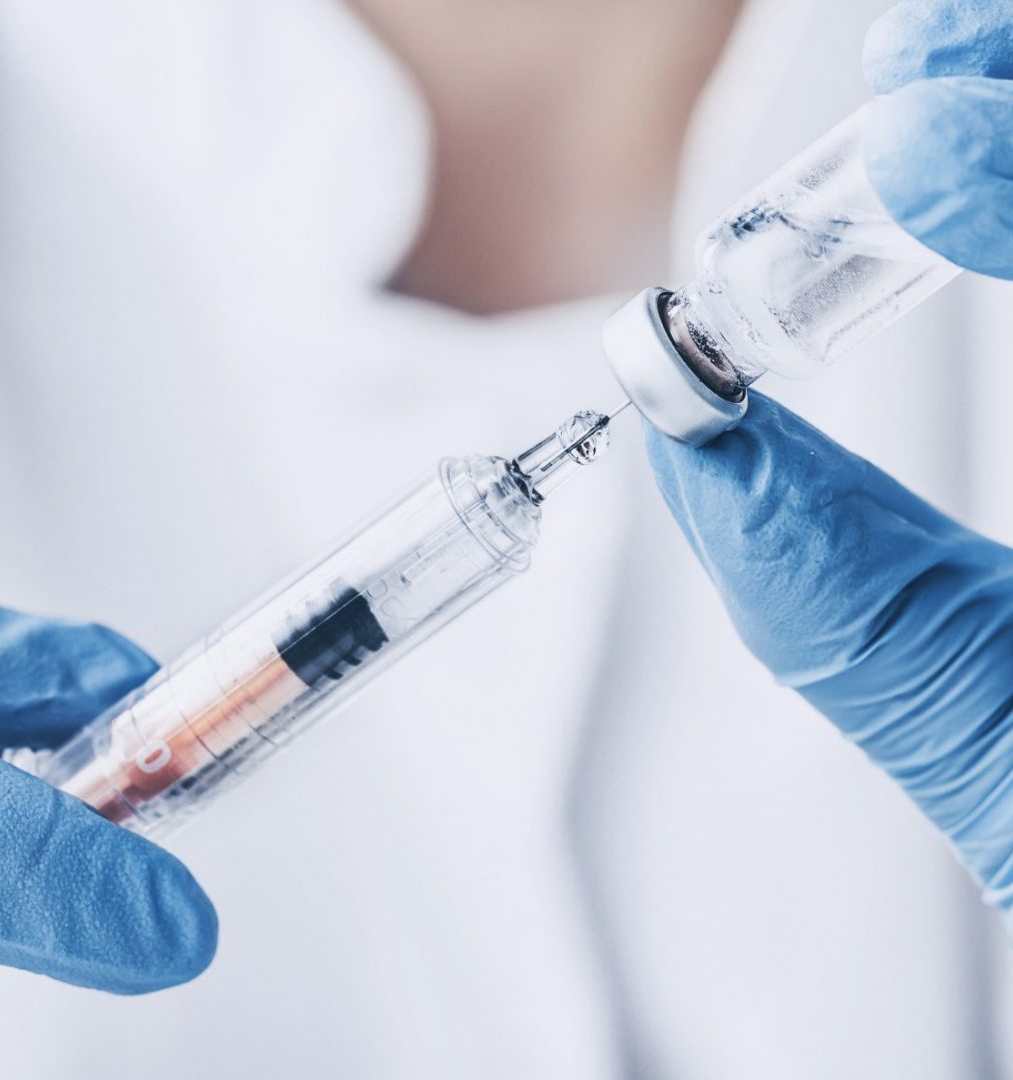Local knee and hip injections can be helpful in the early stages of arthritis. They are less effective in end-stage disease. There are different types of injections used for arthritis. The most common injections are cortisone (steroid), hyaluronic acid (synthetic joint fluid), and platelet rich plasma (PRP). You should consult your surgeon to determine which injection, if any, would be most suitable for you.

Frequently Asked Questions
What is a cortisone injection?
Cortisone is a steroid injection that can decrease the inflammation in your hip or knee and improve pain. It is often injected in combination with local anaesthetic. Cortisone injections are not a cure for arthritis but may provide symptomatic relief in some patients. Unfortunately, it does not work for everybody. Like most injections, cortisone is more effective in the early stages of arthritis.
Cortisone shots should only be given every 6 months due to potential cartilage damage with repeated injections.
What is a hyaluronic acid (HA) injection?
Hyaluronic acid is a naturally occurring substance present in normal joint (synovial) fluid. It is a gel-like substance that helps lubricate the joint. It is believed that adding hyaluronic acid to an arthritic joint will help “loosen” the joint and act as a shock absorber. It is also thought to decrease inflammation in the joint.
HA injections are not a cure for arthritis but may provide symptomatic relief in some patients. Unfortunately, it does not work for everybody. Like most injections, HA is more effective in the early stages of arthritis.
What is platelet rich plasma (PRP)?
Platelet rich plasma (PRP) is a biological treatment for arthritis. It is derived from whole blood and converted to a solution with concentrated levels of platelets in plasma through a centrifuge. PRP decreases inflammation which can provide symptomatic relief. It is important to note that PRP does not regenerate cartilage or reverse arthritis. Some studies suggest that PRP is more effective than cortisone or HA injections.
Patients will typically complete a course of 2-3 PRP injections. Each injection is spread out by 1 week.
How do you do a PRP injection?
To perform a PRP injection, blood is drawn from one of your veins. It is important to be well hydrated prior to your appointment. After your blood is drawn it is placed in a centrifuge to separate the platelets from the rest of the blood. The platelet concentration is then injected into you knee or hip.
How soon can I have surgery after an injection?
Patients should wait a minimum of 3 months after a cortisone injection prior to having a hip or knee replacement. This is due to an increased risk of infection in that time frame. You do not need to wait for surgery after a PRP or HA injection. However, it is important to note that some HA injections, such as Cingal, also contain cortisone.
Which injection is the best?
Several studies suggest PRP is more effective than cortisone or HA injections. It is also thought that HA injections are more effective than cortisone. It is important to note that the evidence surrounding injections is controversial. Some studies also suggest that there is no difference between the different types of injections.
How long do injections last for?
Cortisone injections typically provide symptomatic relief for 3-6 months. HA and PRP injections can provide benefit for a year. It is important to note that some patients do not have any benefit from injections. It can be difficult to predict which patients will have prolonged symptomatic relief.
Injections tend to be more effective in the early stages of arthritis.
Are hyaluronic acid injections covered by insurance?
Many insurance policies cover HA injections. Please speak to you insurance provider.
Are PRP injections covered by insurance?
PRP injections are not typically covered by insurance in Canada.
How much do PRP injections cost?
Please call the office to discuss the price for PRP injections.

